Let’s delve into the heart of the matter: the blacklisting the IRGC, sanctioning the Iranian Supreme Leader Ayatollah Khamenei, sanctioning Dr. Zariff, the Iranian Foreign Minster, sanctioning General Suleimani, the Commander of the Quds Force wing of the IRGC, et al. Naturally, it was not a surprise to any of us Middle East senior analysts that Iran’s IRGC would eventually be sanctioned and designated as an FTO. Before this unprecedented move where an entire branch of another country’s military force would be blacklisted, certain highly-ranked IRGC generals were subject to sanctions, men such as now the former IRGC Commander-in Chief General Jafari, Deputy Commander for Intelligence Hossein Taeb along with several keynote Iranian personalities that were closely affiliated with the IRGC. So it was just a matter of time, especially coming from a wholly-owned subsidiary and puppet of the psychotic Israeli regime, i.e. President Trump, to take it up a notch higher. After all, President Trump’s foreign policy is built on miscalculations, illiteracy, hubris, arrogance, sheer ignorance, and a false projection of power which is a mask for a desperate and rapidly corroding incoherent empire.
As mentioned above, this is the first time in US history that a significant arm of another country’s armed forces is designated as an FTO. This would have not been the case if there wasn’t a dangerous dialogue and confidence deficit in this troubled region of the world: the Middle East or correctly put, West Asia. Also, the typical devious and underhanded way that Israel is goading Iran and Saudi Arabia to go to war against each other is reaching a hazardous level and the IRGC is central to this state of affairs. But we don’t believe Iran would attack a fellow Muslim country regardless of all the Shia verses Wahabbi sable-rattling. We don’t believe an Iran-Iraq Version 2.0 could or would be replicated regardless of the rhetoric on both sides.
Hypothetically, if Iran (and its hybrid conventional asymmetric IRGC military force) does something reckless, which we forecast they won’t, and let’s say they close the Strait of Hormuz or as recently reported, require “permits from the ships going through the strategic Strait of Hormuz”, that would jack up the crude oil prices to well over $150 per barrel, if not more. In that scenario, Iran’s close ally China would be the biggest loser by this move by far. Unlike Washington, Beijing has a strong interest in the stability of the world, not solely for the sake of peace and security but for the sake of their profitable coffers, especially in the Middle East and the Persian Gulf region in particular, where somewhere between 20 to 33% of the entire global supply of oil goes through, 85% of which goes to East Asia. These numbers and figures vary:
Another reported published in 2007 byCenter for Strategic and International Studies (CSIS) stated that “17 million barrels passed out of the Persian Gulf daily, but that oil flows through the Strait accounted for roughly 40% of all world-traded oil.” The U.S. Energy Information Administration (USEIA) stated that, “In 2011, an average of 14 tankers per day passed out of the Persian Gulf through the Strait of Hormuz carrying 17 million barrels of crude oil. This was said to represent 35% of the world’s seaborne oil shipments and 20% of oil traded worldwide.” As stated earlier, the report stated that, “more than 85% of these crude oil exports went to Asian markets, with Japan, India, South Korea and China the largest destinations.”
When it comes to oil exports, there are 10 strategic straits/ canals/ passages in the world. From West to East: the Panama Canal, Strait of Magellan, Strait of Gibraltar, the English Channel, the Turkish Straits, Cape Town Passage, the Suez Canal, Bab-el-Mandeb Strait, the Strait of Hormuz, and the Strait of Malacca. Of these, the three most important is the triangle of the Bab-el-Mandeb Strait, the Strait of Hormuz, and the Strait of Malacca.
The width of the Straight of Hormuz at its narrowest point [between Iran and Oman] is only 40 Kilometers. This 40 Kilometers is divided into three lanes: the territorial waters of Iran comprised of three kilometers, the territorial waters of Oman also comprised of three kilometers, and in the middle, 34 Kilometers of free-flowing international waters where all ships and most importantly colossal oil tankers and US aircraft carriers and other military vessels pass through. Even though the Strait of Hormuz is rather narrow, it is still deep enough for 500,000 tons super oil tankers to go through. As mentioned earlier, if we go with the 20% estimation of the world’s oil supply passing through the Straight of Hormuz, that number would translate to something around 19 million barrels per day! This compares to the Strait of Malacca where 16 million barrels per day and the Suez Canal where 5.5 millions oil barrels per day go through. As such, these numbers make the Straight of Hormuz THE MOST IMPORTANT water pathway in the world for oil passage.
The Straight of Hormuz is the lifeline of the Iranian oil exports whose economy is enormously reliant on oil exports. Around two thirds of Iran’s revenue income is derived from oil sales which according the latest figures (from 2017) bring in $66 billion per year. Naturally, Iran is extremely dismayed that its oil sector has been sanctioned by the US who in turn arm-twists others to follow suit or apply for “temporary sanction waivers”. In a not-too-long-ago speech, the Iranian President made it crystal clear and warned President Trump that if Washington prohibits the sale of Iranian oil, no oil would be allowed to be exported out of the Persian Gulf region, hinting that Iran would close the Straight of Hormuz. This of course is totally unrealistic, given the military might of USCENTCOM (the United States Central Command) which is a theater-level Unified Combatant Command of the US Department of Defense with support roles at bases in Kuwait, Qatar, UAE, Oman, Pakistan, and most importantly Bahrain where the powerful US Fifth Fleet is based. But that sable-rattling speech by President Rouhani was a firm response to President Trump’s ridiculous threat that, “not a drop of Iranian oil would be allowed to be sold”, which is typical Trump grandiose empty bluffing.
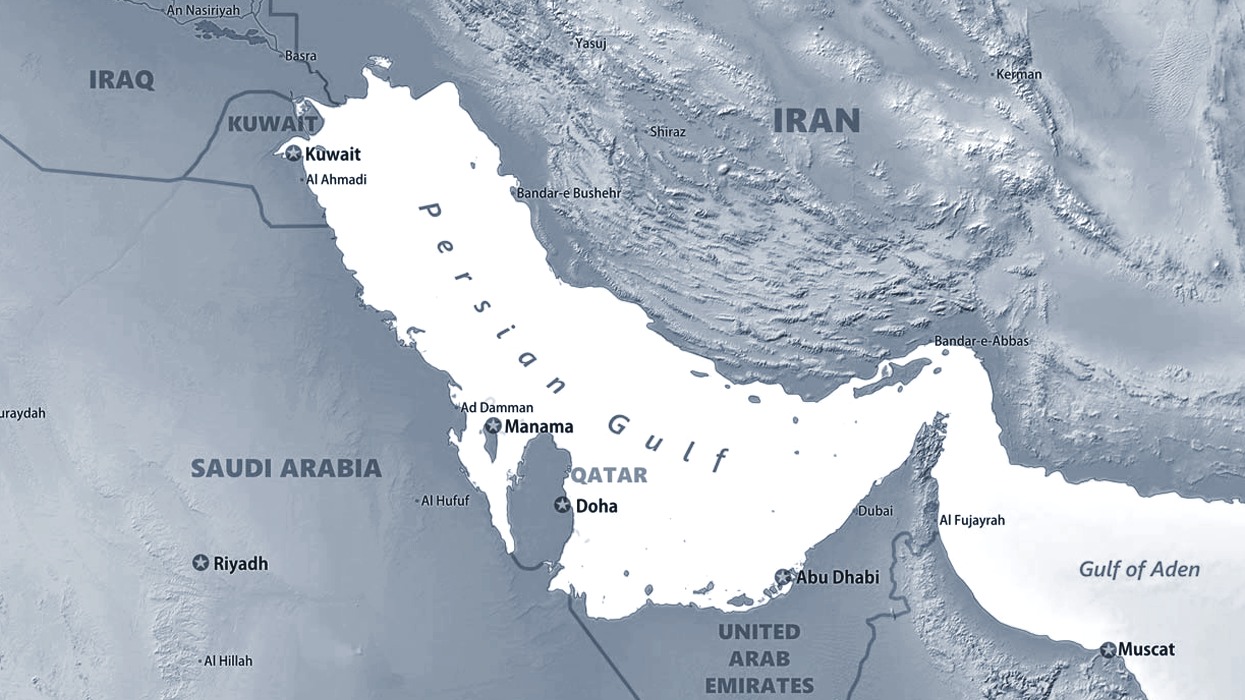
Iran’s IRGC play a crucial role when it comes to the Strait of Hormuz. It was reported on June 29, 2008, that the commander of Iran’s Revolutionary Guard Corps at the time stated that, “If either Israel or the United States attacked Iran, Iran would seal off the Strait of Hormuz to wreak havoc in the oil markets.” This followed more ambiguous threats from Iran’s oil minister and other government officials that, “An attack on Iran would result in turmoil in the world’s oil supply.” However, since the actual closing of the Strait of Hormuz is simply not geopolitically possible, what Iran is hinting to is making the straight as unsafe for oil tankers to pass through and as difficult and risky as possible. Iran does have the military equipment to make this task possible vis-à-vis its underwater mines, submarines, anti-ship missiles, and its IRGC fast boats. But again, this would result in a strong global condemnation against Iran and would be characterized as a declaration of war, with both US and Iran pointing the finger at each other in the global theater of public opinion as the instigator of the escalation of hostilities. Iran’s Foreign Minister Dr. Zariff is on record time after time that, “Iran is not seeking any escalations but that it will defend itself”, while President Trumps has said, “I hope there would be no war with Iran.”
To put it in layman’s terms, any insecurity [and uncertainty] in the transportation and free flow of crude oil will have detrimental impact on related industries such as petrochemical products. Also, as mentioned earlier, this will drastically increase the crude oil prices. For the regular consumer, a rise in the price of a barrel of crude oil would directly translate to higher prices at the gas station, considering that 70% of the price of the gas at the pump is determined by the price of crude oil.
Back to IRGC, keep in mind that immediately after Washington designated the IRGC as an FTO, Iran designated the U.S. Fifth Fleet stationed in Bahrain across the Persian Gulf from Iran as an FTO. Going Back in time and according to Fox News on July 2, 2008, Vice Admiral Kevin Cosgriff, Commander of the U.S. Fifth Fleet, warned that, “Such Iranian action (closure of the Strait of Hormuz) would be considered an act of war, and the U.S. would not allow Iran to hold hostage nearly a third of the world’s oil supply.” Keep in mind, these back-and-forth war of words goes back to 2008. 11 years has passed and tensions have never been as high as now. But nothing is new under the sun other than the impulsive, rash, and idiotic statements and tweets coming from the current occupier of the White House as well as the battle-strengthening of the Iranian armed forced due to their engagements [and interferences] in Iraq and Syria since our bellicose invasion and occupation of Iraq in 2003, followed by the war that started in Syria in 2011, an intended consequence of the so-called “Arab Spring”. So all-in-all, the Iranians have gained 16 years of actual asymmetrical warfare experience thanks to our idiotic war to depose Saddam Hussein in 2003. But that’s not all. As the saying goes in the Middle East, Israel will fight its enemies to the last American soldier!
Back to oil, the Persian Gulf, and the Strait of Hormuz, such talks are reminiscent of the dark years of the 1980-88 Iran-Iraq War when both countries were bombarding each other’s oil tankers as well as all other oil tankers that purchased the other countries oil to stifle exports, thus cut each other’s revenues to bring the war to a halt to either country’s advantage. That was the idiotic strategy back then, not to mention all the damages it incurred on the environment. That madness later became know asthe “Oil Tanker War” in the history books. Around 240 oil tankers were attacked during that bloody eight-year war with 55 oil tankers having gotten permanently sunk.
Back to IRGC, it is noteworthy to mention the replacement of Brigadier General Jafari with Brigadier General Salami as the new Commander-in-Chief of the IRGC by Iran’s Supreme Leader Ayatollah Khamenei. This occurred on April 21, 2019. We believe such a move sanctioned at the highest echelons of the IRGC and Iranian Armed Forces High Command following a few days after President Trump’s designation of the IRGC as an FTO on April 8th was obviously not coincidental and was meant to send a clear message to Washington about the leadership flexibility of the IRGC at such a sensitive time as well as for economic sanction reasons since the IRGC plays a pivotal role in the Iranian economy. The new Commander-in-Chief General Salami is a war veteran from the 1980-1988 Iran-Iraq war and has a Master’s degree in Defense Management. Previous to becoming the Commander-in-Chief of the IRGC, he was the Deputy Commander and prior to that Commander of IRGC Air Force. He concurrently is a faculty member at the Supreme National Defense University.
Anyway, Washington’s addiction to reckless imposition of sanctions or even the threats of sanctions will NOT help to resolve any issues. When US Secretary of State Mike Pompeo gets in front of the State Department’s cameras and threatens other countries to violate international law and the UN charter to not do any business with an institutional pillar of another country, i.e., IRGC and its vast consortium of affiliated companies, he is setting yet another corrosive precedent which will NOT help in promoting peace and security in the region, in fact quite the opposite which we believe was the goal all along. Endless conflicts and perpetual wars are what the Neocons have in mind. They misperceive this strategy as a mechanism to sustain American military and economic dominance in the 21st century.
In reality, nothing could be further from the truth. However, when the Pentagon’s overall budget was a whopping unprecedented $716 billion in 2019, one could argue that there might be many “Dr. Strangeloves” at the highest echelons of power in Washington. And this is not far-fetched considering the idiotic wars that we started in Afghanistan, Iraq, Syria, etc.








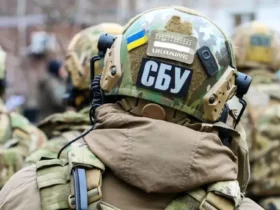
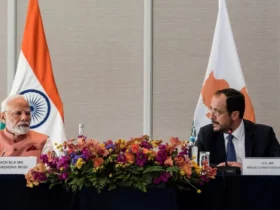
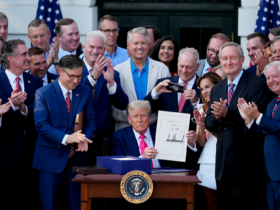
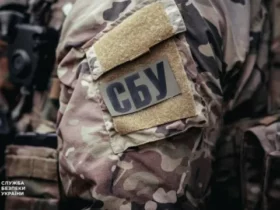





Leave a Reply